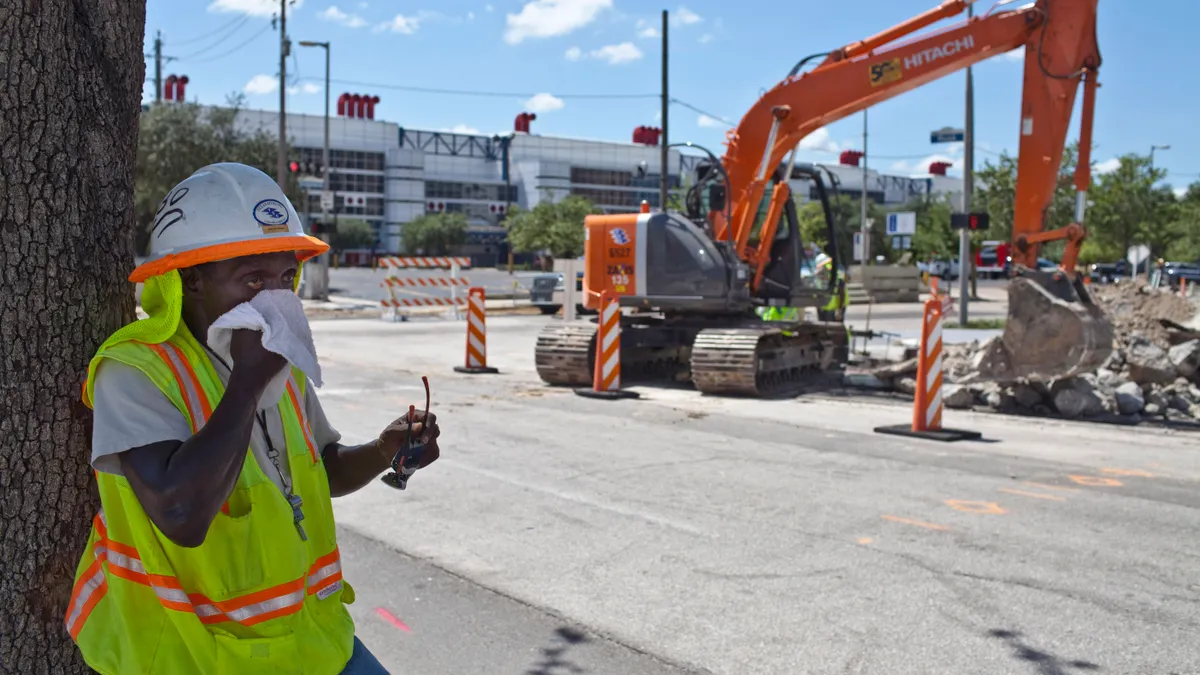Dive Brief:
- The Federal Reserve will probably fail to steer the economy away from a recession as it fights the worst inflation in four decades by aggressively withdrawing stimulus, according to 73% of economists surveyed this month by the National Association for Business Economics (NABE).
- Nearly half of economists (47%) believe a downturn will begin by the first quarter of next year, while 19% believe the economy is already shrinking, the NABE found in a survey released Monday.
- “Panelists are not confident that the Federal Reserve will be able to bring inflation down to its 2% goal within the next two years without triggering a recession,” NABE Policy Survey Chair Juhi Dhawan said in a statement.
Dive Insight:
Fed officials last month flagged the same recession risks as NABE economists, voicing concern that the central bank may go too far in its quickest tightening of monetary policy since the 1980s, according to minutes of the July 26-27 Federal Open Market Committee (FOMC) meeting.
FOMC participants noted “a risk that the committee could tighten the stance of policy by more than necessary to restore price stability,” according to the minutes. They affirmed support for “the committee’s data-dependent approach to judging the pace and magnitude of policy firming over coming quarters.”
The central bank lifted the benchmark rate last month to a range between 2.25% and 2.5% and in June forecast an increase to around 3.4% by the end of this year and 3.8% by the end of next year.
Policymakers since March have raised the main interest during four consecutive meetings from a record, near-zero low. In recent weeks they have flagged the prospect of another increase of 50 or 75 basis points during their next two-day meeting ending Sept. 21. A basis point is one hundredth of a percentage point.
More than half of economists (52%) believe the central bank will raise the upper end of the federal funds rate to between 3.5% and 4.25% before beginning to cut borrowing costs, NABE said.
Economists disagree on where the main interest rate will end up by the end of 2024: 42% expect it will be between 2.5% and 3.25%, while 27% forecast 1.5% and 2.25%, and 20% predict 3.5% or higher at that time, NABE said.
Fifty-two percent of economists are not very confident — and 21% are not at all confident — that the Fed during the next two years will reduce inflation to its 2% goal without triggering recession, NABE said.
Respondents reflecting on aggressive Fed tightening “appear to express the view that this all may be too little too late,” Julia Pollak, chief economist at ZipRecruiter and an NABE Economic Policy Survey Analyst said during a webcast. “They are not confident at all that the Fed will manage to achieve a ‘soft landing,’” or reduce inflation without causing recession.
While noting the high risk of a downturn, economists are split on whether the central bank is reducing accommodation quickly enough, with 44% asserting that monetary policy is still too stimulative and 46% saying the Fed’s approach is about right, NABE said. Nine percent of respondents said the FOMC is too restrictive.
Seven out of 10 economists cited an unclogging of pandemic-induced supply chains constraints as a key factor in curbing price pressures, NABE said, while 68% believe monetary policy is especially influential.












